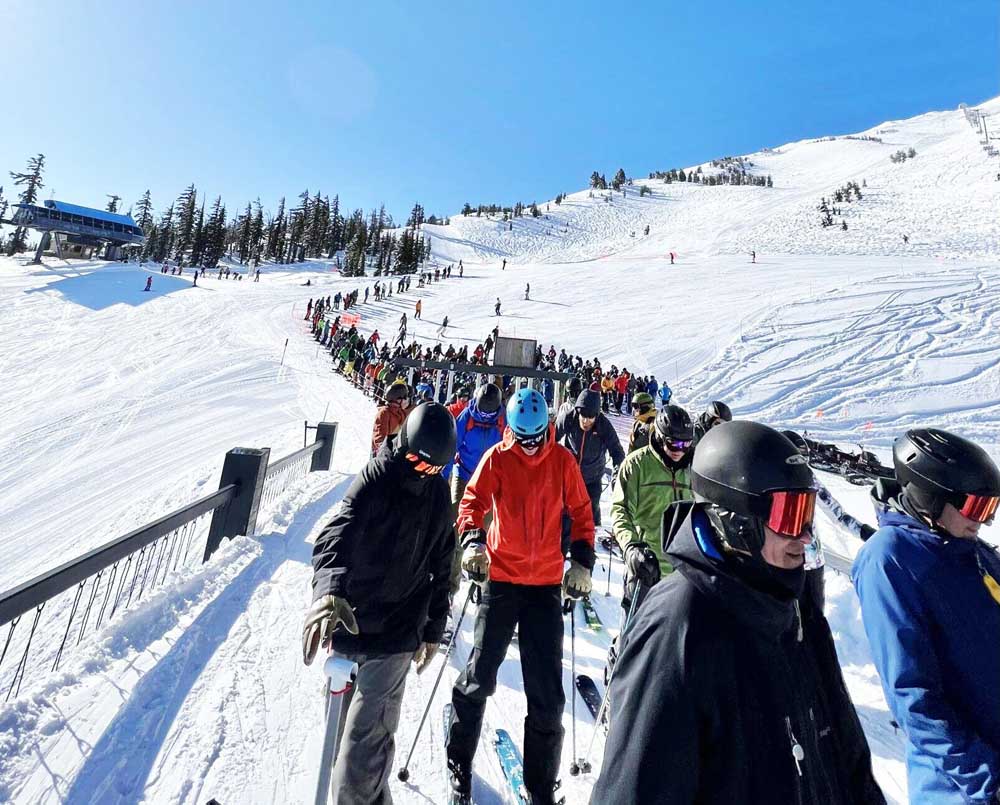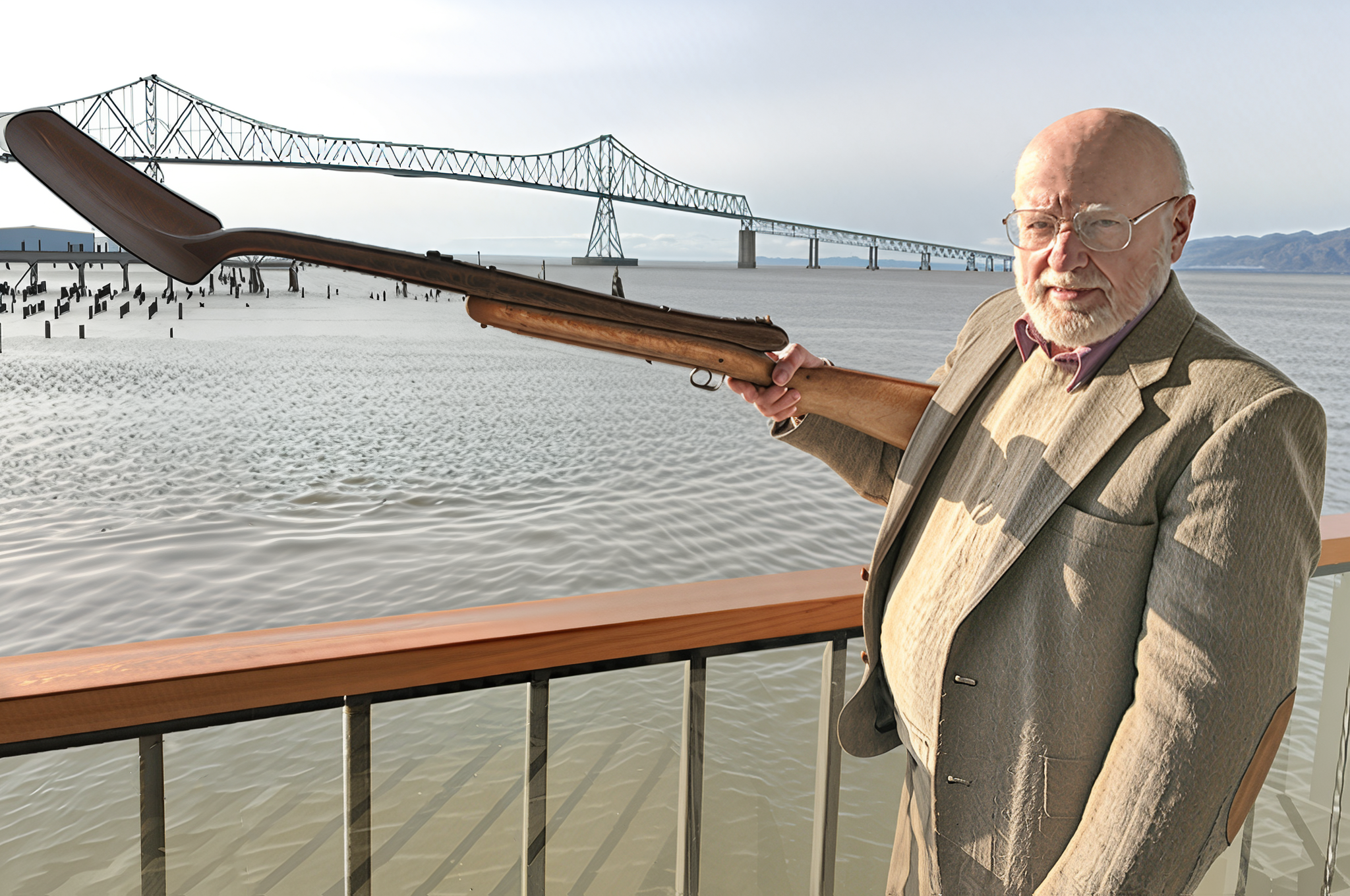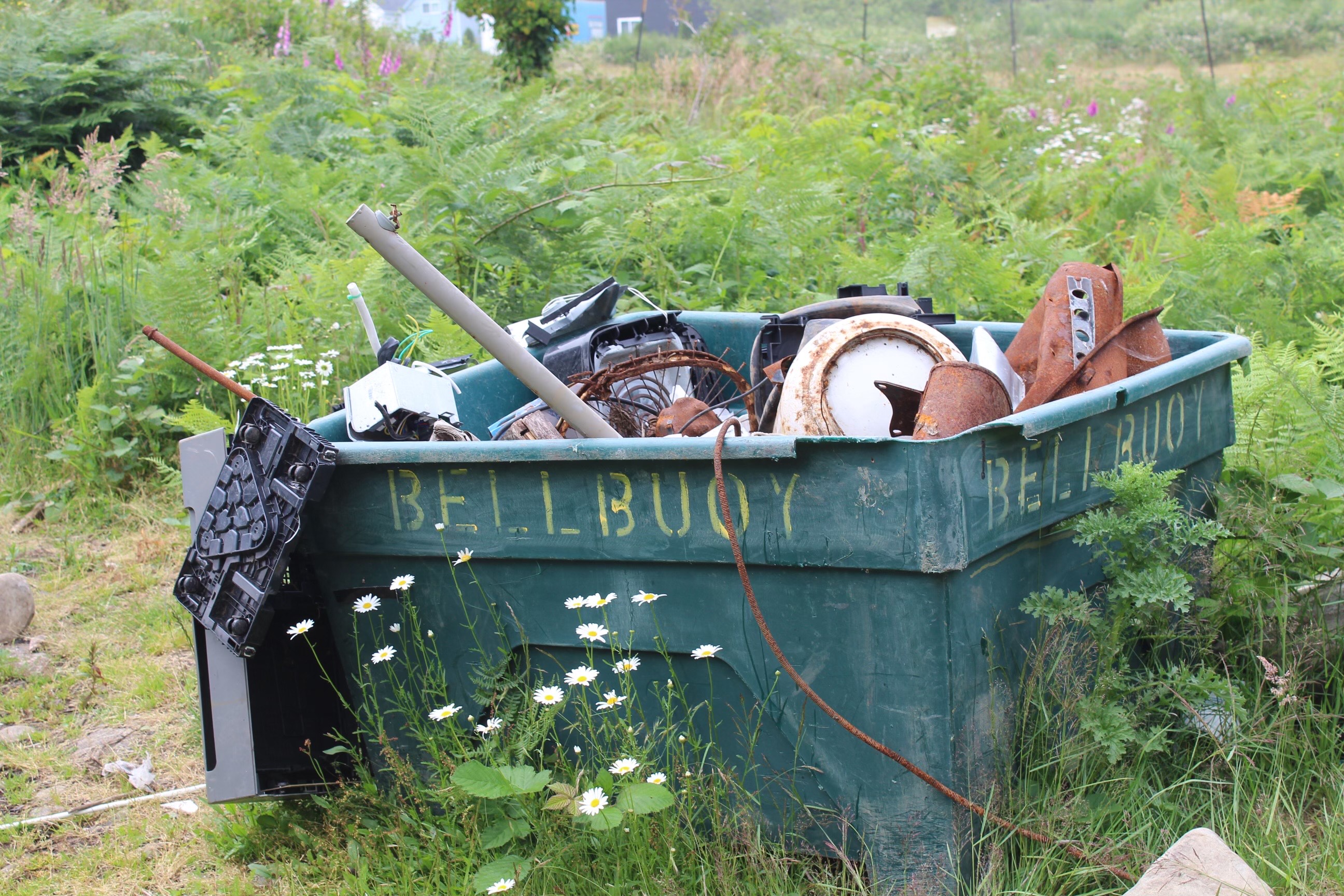Recreation industry making push for bill to limit injury lawsuits
Published 9:56 pm Thursday, February 16, 2023

- Skiers and snowboarders line up for the Summit Express Chairlift at Mount Bachelor ski area near Bend on Wednesday.
The long battle over Oregon’s unique recreational liability standard was renewed Wednesday at a hearing in Salem on a bill to limit lawsuits by those injured while using ski resorts, gyms, on rafting trips or in community marathons.
Senate Bill 754 would overturn an Oregon Supreme Court ruling in the case of a 2006 accident at the Mount Bachelor ski resort near Bend. The state’s high court ruled in 2014 that the standard user waivers limiting liability were “unconscionable contracts.”
Advocates include members of Oregon’s nearly $17 billion recreation industry, cities like Bend, Hood River and Lincoln City that depend on outdoor tourism, and the insurance industry. Protect Oregon Recreation, an alliance created to support SB 754, has over 125 member business, groups and associations. The group estimates that recreation accounts for 245,000 jobs in Oregon.
SB 754 supporters say Oregon is the only one of 11 Western states that has effectively nullified liability waivers. That puts the state at a disadvantage for building outdoor tourism. The liability ruling has created concerns not just for ski resorts, but for rafting guides, bicycle rental companies, outdoor sports instructors, as well as indoor gyms and health clubs that routinely require customers to sign liability waivers. It could also impact local sports clubs and community running, paddling, bicycling and other events.
Jeff Kohnstamm, whose family has run Timberline Lodge on Mount Hood since 1955, said recreation was central to the state’s identity and economic health.
“As Oregonians, recreation is part of who we are,” he said. “It is vital to countless livelihoods and enhances the well-being of all constituents.”
Kohnstamm detailed what he said were the growing number of activities, such as riding on bike trails, that insurance companies will no longer cover. He said the increasing premium hikes and sometimes outright refusal of coverage would likely expand into more recreational areas, including downhill skiing.
“Without liability reform, this is a harbinger of things to come,” he said.
Earlier attempts to overturn the court ruling have come up short, with the Oregon Trial Lawyers Association often organizing opposition. At Wednesday’s hearing, the testimony against the bill was led by people who were injured or whose family members had been killed while involved with recreational businesses or groups.
Myles Bagley, whose case set the current legal standard, testified against the bill. In 2006, Bagley, then 18, crashed on a jump at Mount Bachelor’s terrain park, suffering injuries that left him paralyzed from the waist down.
The Deschutes County Circuit Court and the Oregon Court of Appeals ruled that Bagley could not sue because he had signed a liability release. Eight years later, the Oregon Supreme Court overturned the lower courts.
Bagley testified Wednesday that attempts to shift responsibility for dangerous man-made features such as the expert-level ski jump at Mount Bachelor were “immoral.”
“Now I must live my life paralyzed through no fault of my own,” Bagley said.
Earlier attempts to change the law have failed to win approval. The new coalition mounted the current effort following a Multnomah County case in May in which former professional mountain biker Gabriel Owens was awarded $11.4 million in a lawsuit against Mount Hood Ski Bowl. Owens was left paralyzed when his bike hit a drainage ditch that crossed an expert-level bike path, causing him to lose control and collide with a signpost.
Gretchen Mandekor, Owen’s attorney, testified Wednesday that SB 754 would give recreational operators “a free pass” that went beyond the natural dangers that users expect and man-made problems such as the rut created by the drainage ditch at Mount Hood Ski Bowl that caused Owens’ crash.
“There is a difference between inherent risk and risk created by the businesses,” she said.
Testimony was also given by a woman whose husband was killed on an icy snowboarding run at Mount Hood, and the mother of a woman who drowned when pinned underwater when guides on a river trip near Eugene lost control of a raft, flipping the riders into the water strewn with fallen trees and other debris.
The trial lawyers did not have an official speaker testify at the hearing on Wednesday. The organization released a short statement Tuesday opposing the bill.
“This bill would allow a recreational facility’s negligence to go unchecked,” the statement said. “It gives them blanket immunity and reason to not follow safety standards.”









